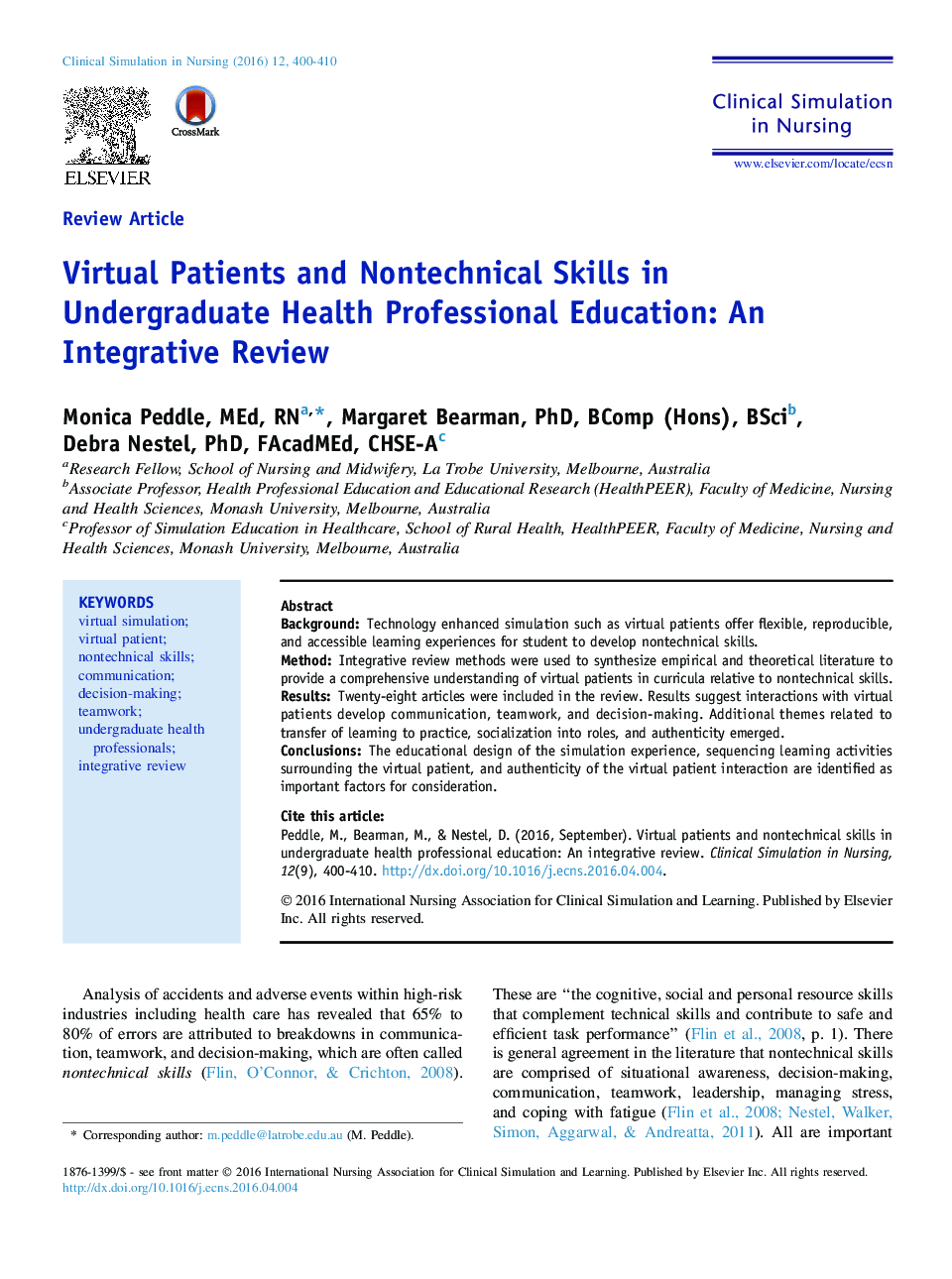| Article ID | Journal | Published Year | Pages | File Type |
|---|---|---|---|---|
| 2646873 | Clinical Simulation in Nursing | 2016 | 11 Pages |
•Virtual patient interactions develop communication, teamwork, and decision-making skills.•Interactions with virtual patients assist translation of knowledge to practice.•Socialization of students into professional roles is supported by interactions with virtual patients.•Authenticity is an important factor in virtual patient design.•Authenticity relates to eliciting emotion and empathy and portraying variability.
BackgroundTechnology enhanced simulation such as virtual patients offer flexible, reproducible, and accessible learning experiences for student to develop nontechnical skills.MethodIntegrative review methods were used to synthesize empirical and theoretical literature to provide a comprehensive understanding of virtual patients in curricula relative to nontechnical skills.ResultsTwenty-eight articles were included in the review. Results suggest interactions with virtual patients develop communication, teamwork, and decision-making. Additional themes related to transfer of learning to practice, socialization into roles, and authenticity emerged.ConclusionsThe educational design of the simulation experience, sequencing learning activities surrounding the virtual patient, and authenticity of the virtual patient interaction are identified as important factors for consideration.
